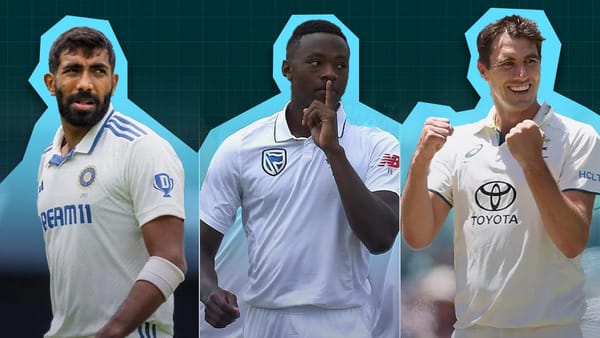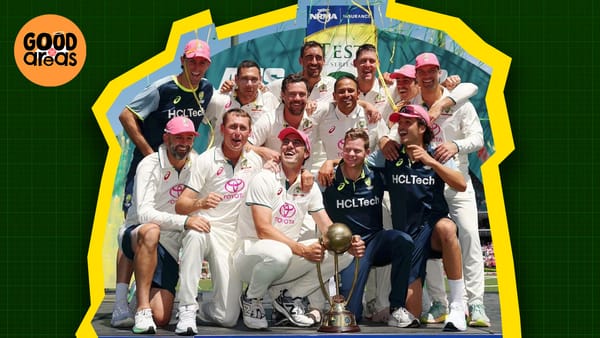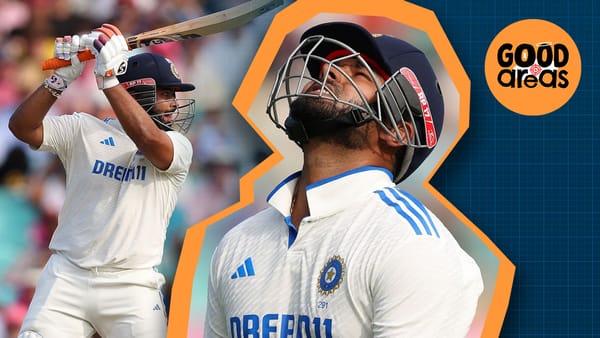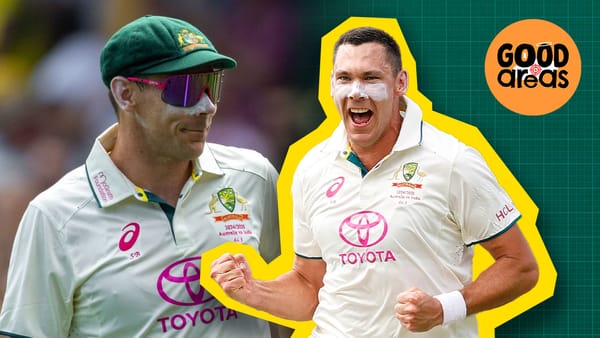Fans with Laptops: my course on writing and media on sport
I have taken my writing course and added everything I learned after lockdown.
A few years ago I had a bit of a panic attack after ESPNcricinfo made me their global writer. I'd earned that position but also felt like a complete fraud at the same time. Officially there was no paperwork saying I was a writer. I hadn't passed high school, or gone onto university. The closest to an official document was when I very nearly passed one year of film school.
But the paperwork thing was kind of neutralised a little by the fact someone was going pay me for that job.
The bigger issue was that I didn't really know how I wrote. I understood there was a process, and I had gears, and there were different styles. But how it all fits together felt random. And I began to panic like a golfer with a natural swing. What happens one day if I get the writing yips? Was that it? Would my career be over?
So a bit like I do with cricket, I went about analysing my work from top to bottom. I wanted to know why I made my choices, what they were, and then went about ensuring that I had such a structure in place that I could write at the level I was - or better - for the term of my natural life.
And once I did that, I figured I was in a pretty good situation to teach others how to write better.
My background is pretty random. I wanted to be a writer from the age of five. But in the outer suburbs of Melbourne, it wasn't a job that anyone saw as real. Even my mother - a librarian - would say that it wasn't a real job (not sure she understood who wrote all the books she handed out). I had one teacher tell me I could be a writer, and plenty more make it clear it would never happen.
Through my troubles at school, my writing style is different to others. I have likened it to a street basketballer growing up on an odd-shaped court in the windy part of town. Many professional writers come through the education system. They have a basic understanding of what the industry wants. I had none, but I understood narrative, could paint pictures, while loving researching and finding new things.
I wrote like no one else because I didn't know how you were supposed to write about sports. I wrote about things that I cared about because I didn't understand news cycles. And I wrote with a piece of me in each article because no one was around to tell me it was wrong. This means I created a career unlike anyone else.
It meant my path was more handmade, and therefore more useful to people trying to become writers without spending years studying it.
So everything I learned along the way was turned into a course called Fans With Laptops. The name came from the old whiney journalists who hated writers like me as we hit the press box.

It was first tested on people in London who were happy enough to come to my house, then later in an online version. That has now been online for almost six years, and first-timers through to professionals have taken it. All the feedback I've received has been incredibly positive.
But if my own imposter syndrome was my first professional crisis, then the second was Covid. I left Cricinfo in 2018 to go work with cricket teams and commentate for talkSPORT. And for about 18 months it all went great, until the world shut down.
So I had to work out what to do next. After milking some freelance work, I realised my best chance was to create my own network directly for the followers I had grown.
I had always wanted to do some podcasts, and so I instantly planned three different ones. Two I started almost straight away (the third is still in development) and that would be enough for most people. But then I also tried an emailer and then a YouTube channel. Later I'd bump up my Instagram presence and set up a Tik Tok account as well. All of which was bound together by people supporting me on Patreon.
Yeah, it's a lot. But it wasn't random, I started studying podcasts, the podcast plan had been with me for years. Emailers was also something I was interested in, and I had to write for somewhere. YouTube, I was probably dragged to by a friend. And although I didn’t use social media as much, I’d always wanted to create more things for it.
I never really had to think about this before. You can do that when you're writing on a platform with 40 million active users. You just file your copy, and walk away.
When I was on my own, if I came up with a great idea, I had to ensure I got it to all my audience. And along this journey, I discovered that people had really changed how they consumed content on the internet. And so I went against the grain of what mainstream media was doing (and had taught me). Once I discovered that all my platforms grew quicker and I found new audiences.
Most writers, or podcasters, or whatever I am, don't have to worry about this side of things. Even professional writers usually are just told to go on a podcast, without really thinking about what that is about. I had to work all this out on my own.
So again, I have found myself a pretty decent teacher to most wannabe sports creators. I taught myself how to write, and then trained my brain how to turn that into a network of content that can be shared anywhere.
So if you want to write about sports, make a fan podcast or create quality social content, this is the course for you. The first half is about writing, the second half is about the rest of the media.
The areas covered:
Who you are as a writer
Athletes and teams
Article types
Finding stories
The tools
A guide to interviewing
A start to finish guide on long-form writing
Data and writing
Giant Lizard Theory
Multi-Media thinking
Podcasts
Videos
Content plans
Social Media
Monetisation
Self-promotion
When I first launched it, I was told it could sell for 500USD. But I didn't want to do that, because I thought it had to be affordable for people like me. So I made it 50/60USD (depending on locatio). And allowed it to be owned for your lifetime.
Most of the people I have worked with in my career are nepo babies or people from fancy schools with good connections. People outside of these backgrounds often don't see writing as a career path (I certainly didn’t). If nothing else it means that there isn't the diversity of thought in the media that there should be.
The Guardian once said I was a 22nd-century sports writer. I was so different and probably appeared a bit alien to them.
I would never want to say I'm trying to create an army of non-terrestrial non-nepo babies, because that is a terrible sentence. But I have seen that when you get people in from varied backgrounds, content is better. And I make things I want to consume in podcasts, writing and videos. It’s the same with this course, the people who take it I hope will compose things for me to follow as well.
So far a few people who’ve completed the course have gone on to have careers, but I am just as proud of the amateurs who created their best work.
And at the beginning I know how hard it is. I was in the same kind of cold dark room banging away on my computer, stuck in the internet's outer rims, hoping what I put there would be good. That panic, and so many more, are what I had to fight to be the best creator I can be. And I have made so many mistakes that I hope you never need too.
So if you’re interested, let's pair the passion you have for sport qith my mistakes and make something wonderful from them.




